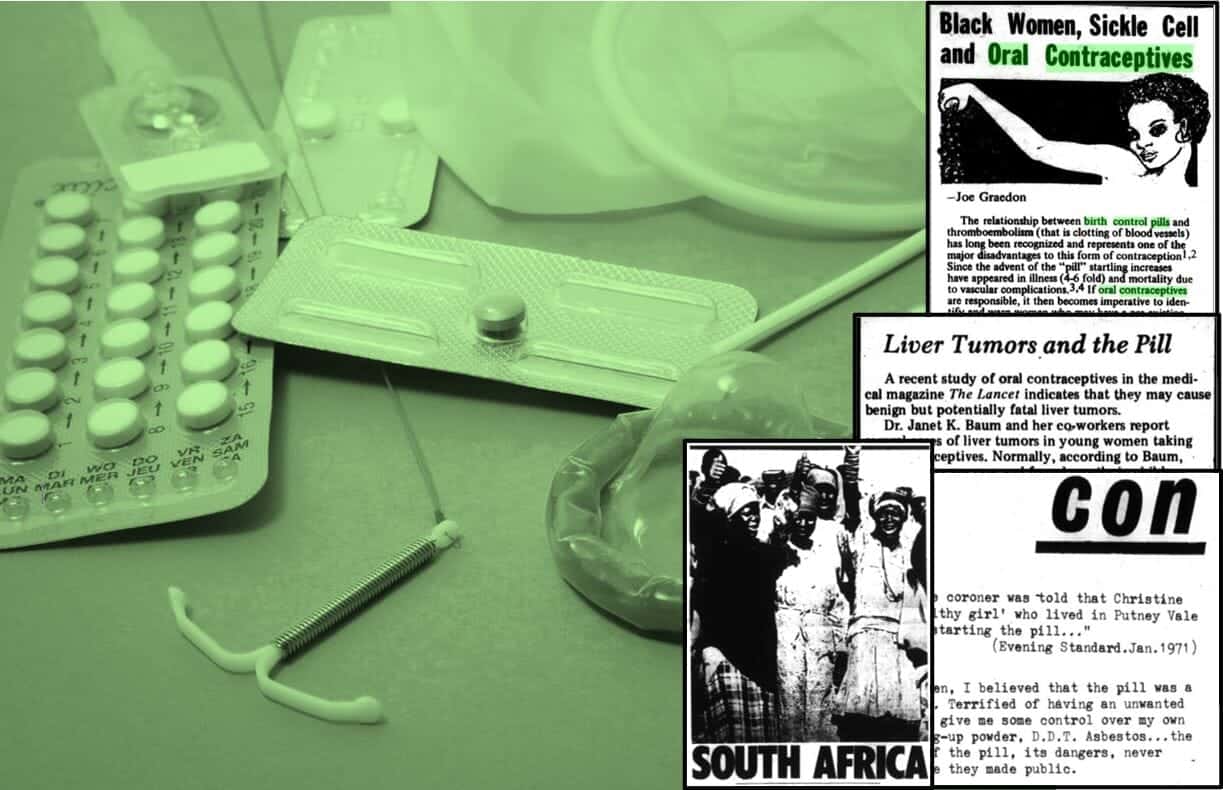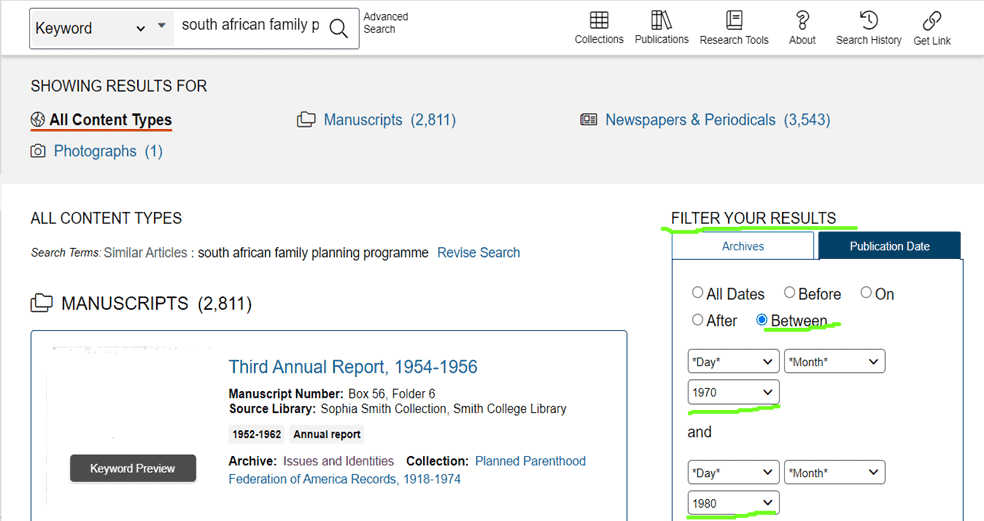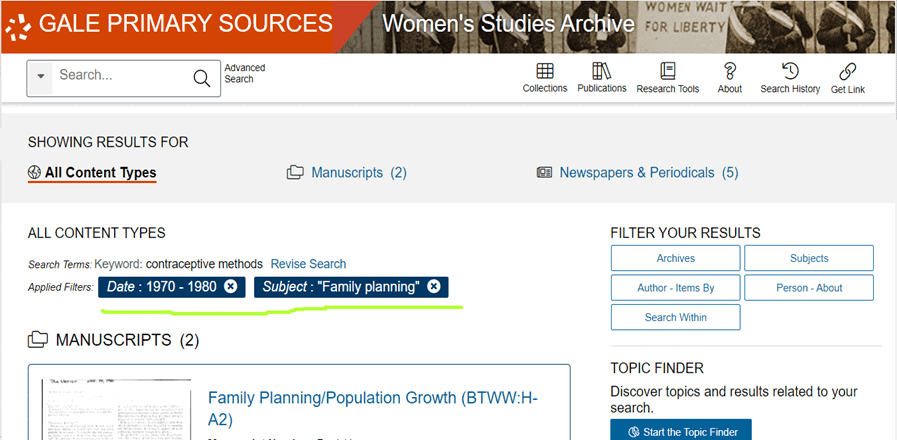│By Nonkoliso Andiswa Tshiki, Gale Ambassador at the University of Johannesburg│
Having to complete my Honours research paper in the era of Covid-19 left myself and many other students feeling stranded so far as to how to obtain valuable and relevant academic resources. Access to digitised resources quickly became vital to one’s success in academia and I am happy that I came across Gale Primary Sources when I did because they contributed greatly to the completion of my thesis. This blog will show how I utilised Gale’s Archives of Sexuality and Gender, and Women’s Studies Archive collections to explore my thesis topic – the Media and Technologies of Contraception in South Africa between the 1970s and 1980s.
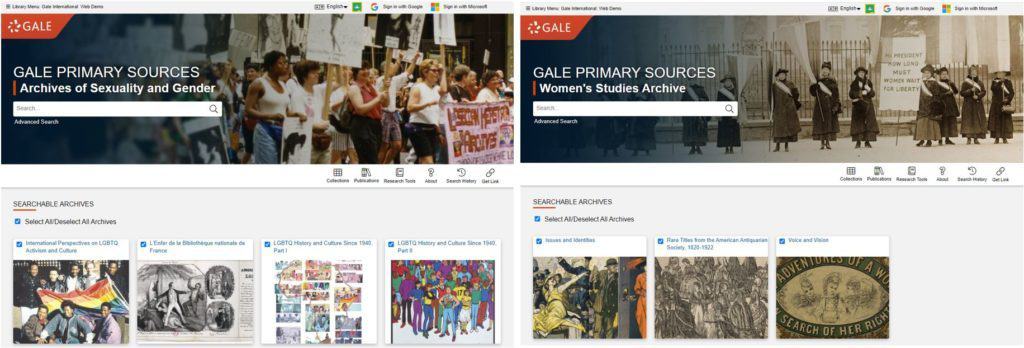
Focusing my search results using the platform filters
My dissertation was on the prevailing views held by scientists and medical practitioners on the legitimacy of the contraceptive technologies that were administered through the South African 1970s Family Planning Programme, in comparison to how those contraceptive technologies were reported through the media. Gale’s Women’s Studies Archive contains many primary sources from different centuries. Thus, I found that utilising the Publication Date filter assisted in narrowing my search to the exact period relevant to my thesis – the 1970s to the 1980s. How to use this filter can be seen highlighted green in the screenshots below.
The South African Family Planning Programme of the 1970s
The correlation between South Africa’s level of fertility, patterns, distinctions, methods, the apartheid philosophy and the country’s population regulation initiatives is complex. The detected changes in birth rates between the 1970s and the 1980s could have been a reflection of the socioeconomic situation and overall disparities of the apartheid political environment of South Africa. However, the birth control movement took a significant turn in the 1970s with the launch of its very first state-funded and owned Family Planning Programme. Many believe that the National Party-led government introduced the National Planning Programme as a reaction to what they supposedly identified as an alarming increase of the black population’s fertility rates in the early 1970s.
The appearance of health contraindication controversies
To some South African women, the expansion and introduction of more modernised reproduction control technologies such as oral contraceptive pills, injectables and the Intrauterine Device (IUD) provided a sense of sexual liberation, in the sense that they now possessed the power to control their reproductive health. However, this ‘dream come true’ was short-lived as numerous global media and medical controversial reports like this one were published which highlighted safety issues with chemical-based contraceptive methods. In South Africa these health contraindication controversies were perceived by many as colliding with the political environment at that time, and this could have heightened perceptions of suspected malicious motives by the National Party-led government to control South Africa’s population.
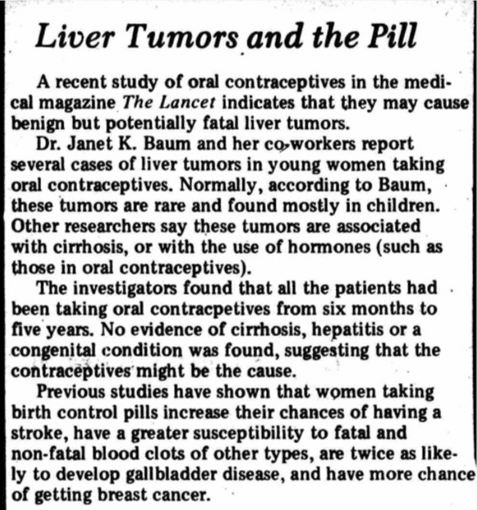
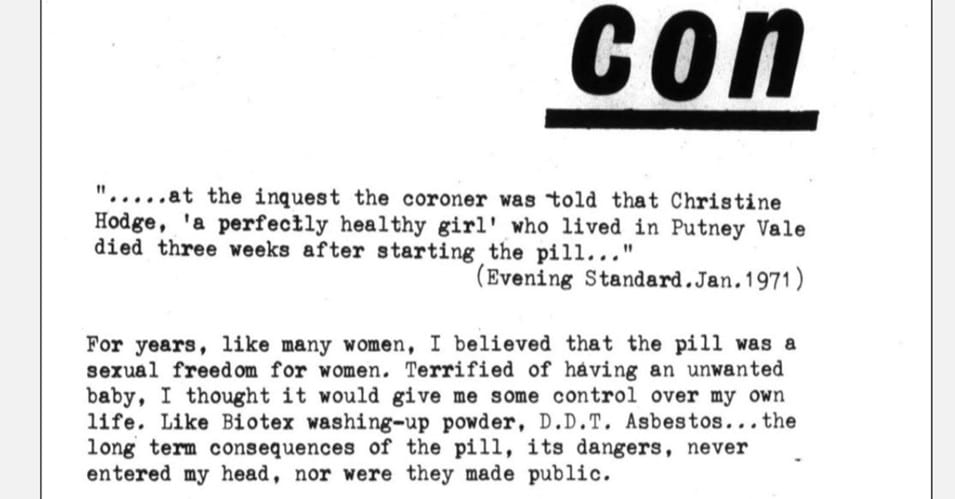
‘Targeted’ distribution and victimisation?
Some people believe that the continued provision of chemical contraceptives by South Africa’s National Party-led government in the 1970s to 1980s, despite the health risks that were aligned with the method, was actually a form of genocide; that the centralisation of the apartheid’s regulatory initiatives was in many ways based on the National Party-led government’s population concerns.
Sickle Cell disease is a condition that particularly affects the Black population, making it very significant, therefore, that oral contraceptives are potentially more dangerous for those with Sickle Cell disease. As the article below explains: “since oral contraceptives are known to produce changes in clotting as well as in oxygen availability in tissue it is only reasonable to assume that women with sickle cell problems may be at risk while taking birth control pills”. Consequently, the ‘targeted’ distribution (as some South African traditional leaders and anti-apartheid activists have stated) of oral contraceptive pills to African women might have been perceived as a way to victimise them.
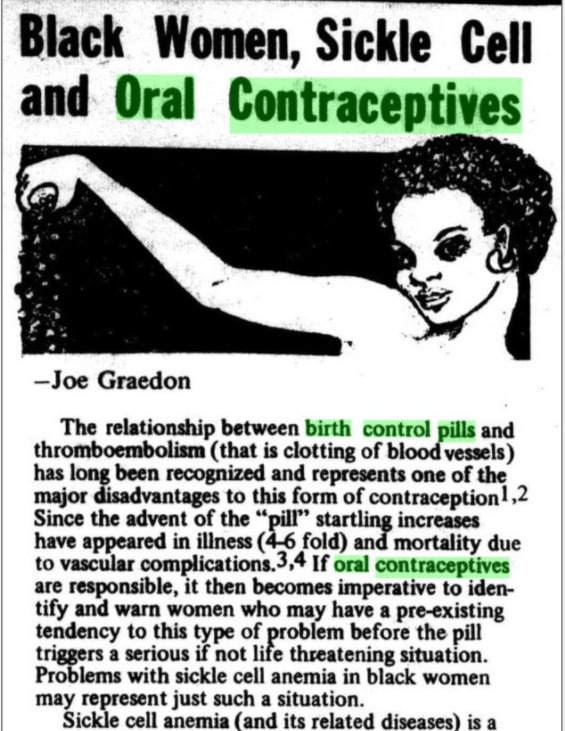
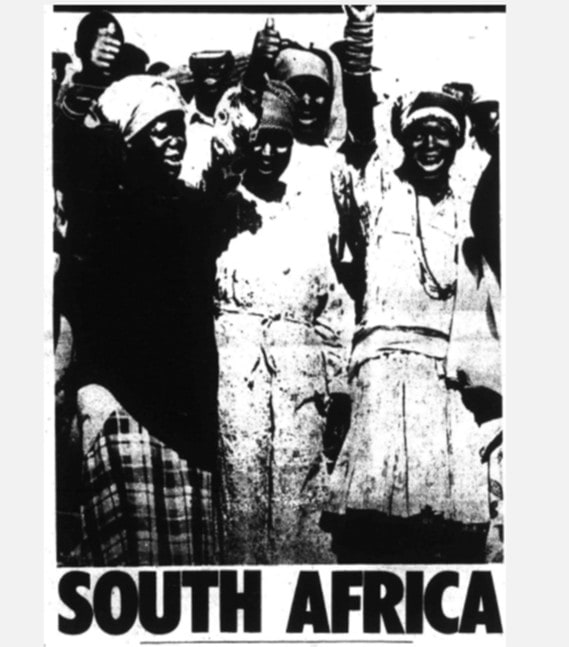
Multiple ways to approach a research topic
Completing my Honors research paper in the era of Covid-19 presented tremendous challenges, from the daunting exercise of choosing a research topic, to finding valuable resources to support my thesis. Plus my research topic was quite narrow, so finding resources that matched my topic was particularly difficult. Searching within Gale Primary Sources, however, I found a wide and varied range of valuable materials that I could utilise for my Honors thesis. Plus, throughout my university studies, I have learned that writing history is not so much about proving if certain events happened, as about contributing to the discourses around that historical event or concept. As well as content aligned to my topic, I found materials in Gale Primary Sources that provided different, alternative ways I could approach the essay, providing the means by which to explore and engage with numerous historical discourses.
If you enjoyed reading about Media, Technologies and Politics of Contraception in South Africa between the 1970s and 1980s, you might like:
- Birth Control: A History in Women’s Voices
- A Male Contraceptive Pill – could this bring greater gender equality?
- A Woman’s Role? Why Feminism Is Still Very Much Necessary
- African Hairstyles – The “Dreaded” Colonial Legacy
If you would find additional guidance on using primary sources in your thesis, you might like:
- How Gale Literature Provided Vital Support for My Dissertation
- How Gale Primary Sources Helped Me with My Dissertation- and Can Help You Too
- Top 10 Tips to Ace Your Dissertation
- From Archives to Master’s Thesis – Linguistic Analysis of Nineteenth-Century Theatre Reviews in The Times
Blog post cover image citation: A design created from an image by Reproductive Health Supplies Coalition available on Unsplash.com of a range of reproductive health supplies, combined with archive images from this blog post.

